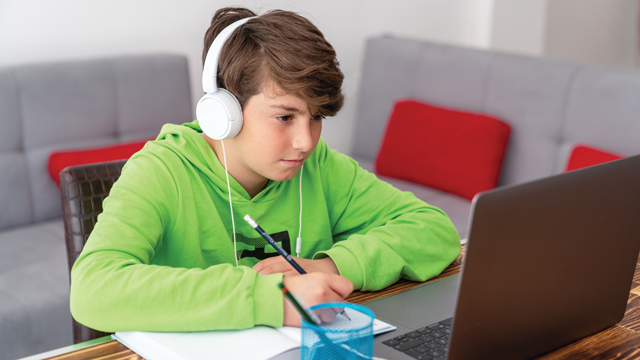Lauren Boothe of Chesterfield is a cellist and a junior at the Appomattox Regional Governor’s School for the Arts and Technology in Petersburg. When area schools initially transitioned to online learning in March, Lauren and many of her classmates felt depressed and anxious.
“Everyone was saying how much they missed school,” Lauren said. “They were concerned with how tests, quizzes, exams, and just classes in general would carry on.” Lauren admitted motivation was a problem for her in the beginning. “Finding the will to get work done was challenging. I struggled relentlessly to motivate myself,” she said.
Lauren had never taken an online music course prior to the pandemic, but she discovered a few perks when it came to her virtual lessons. A cellist since sixth grade, Lauren appreciated being able to move at her own pace and having the undivided attention of her instructor. “I was also able to get feedback I may not have gotten were I in class with my peers,” Lauren said.
While there certainly have been some silver linings like Lauren mentioned, the common denominator for both students and teachers was an overwhelming feeling of worry. Students wondered how they would get their work done, how that work would be graded, and whether teachers would understand that many students’ resources were limited and they were doing their best with what they had.
Similarly, teachers asked: How can I reach all of my students online? How will I assess them in a fair and meaningful way? What are the most important things they need to learn, and how can I cover these topics in an online format?

Brian Justice, a history and religion teacher at Collegiate School in Richmond, faced similar concerns in the early weeks of online instruction. “Online instruction is so different than in person, and the level of engagement varies widely from student to student,” Justice said. “But I provided a lot of direct feedback to students through email and through shared documents, which was successful.”
Like many area kindergarten through twelfth-grade instructors, Justice had not taught an online course prior to the pandemic. He prepared to reach his students by planning comprehensive lessons and ensuring each class session was as engaging as possible. There were times when this proved to be a great challenge, as Zoom and other online meeting platforms tend to take some of the magic out of learning.
“Education is all about transformation. It’s about being changed. It’s about being set on fire with curiosity, with passion, with discovery of self and others, and with motivation to go forward,” Justice said. “‘While it is great that we can continue to deliver instruction online, the energy of presence and the potency of personality that facilitate such processes are greatly diminished online.”
Still, despite the limitations of virtual instruction, Justice witnessed many of his students take charge of their learning in ways they may not have under ordinary circumstances. Overall, he says, online instruction is most effective with students who are self-regulated learners.
Making the Most of Things
Jonathan Becker, JD, PhD, an associate professor and online coordinator in educational leadership at Virginia Commonwealth University, has been teaching online courses for more than a decade. Additionally, the focus of his current research is distance learning in higher education.
In terms of reflecting on how Greater Richmond area schools fared in their transition to online learning, Dr. Becker said it went as smoothly as one could expect.
“Schools had very little time to switch their entire model; a Herculean task, somewhere between turning around a cruise ship and boiling the ocean,” Dr. Becker said. “Teachers were looking to principals, who were looking to the division, who were looking to the state for any kind of guidance on how to move forward.”
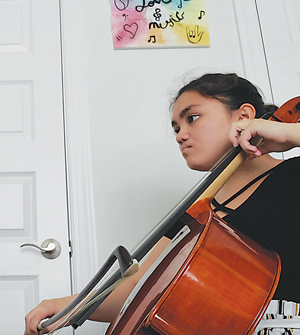
There were so many initial uncertainties, yet decisions needed to be made quickly. Would students be required to attend online classes? What would happen with SOL testing? How many students had access to computers? What about WiFi?
Despite hiccups, the stories that surfaced in our area in the spring were tales of triumph from extraordinary educators and administrators. Elementary teachers decorated their vehicles and paraded through neighborhoods to let students know they were missed. High school teachers boarded buses and rode out to deliver signs and personally congratulate graduating seniors. Principals emailed educational tips and motivational quotes to help students and parents feel more connected and less alone.
“I know of one local high school teacher who worked with and met his students in Minecraft, taking advantage of a space where kids might be more engaged. Henrico’s EdFlix, a Netflix-style distance learning website, was another creative attempt at engaging students using a familiar theme or modality,” said Dr. Becker.
There were also great stories at the school district level. “Hopewell City Public Schools retrofitted dozens of buses with wireless routers to provide WiFi access to nearly a thousand students who didn’t have reliable Internet access at home. Richmond Public Schools purchased over 10,000 laptops to distribute to students who did not have one,” said Dr. Becker.
And in homes everywhere, parents were suddenly tasked with overseeing and reinforcing their child’s online education, often while continuing to work their own jobs.
Ashley Steininger is a local teacher and mother of two. Her younger son Coleman recently completed second grade at Henrico County Public Schools. Coleman’s teacher provided weekly instruction through Zoom meetings and Activinspire flip charts. She also encouraged the use of the county’s EdFlix programs and made herself available for questions and feedback. Ashley, while monitoring lessons, caring for her younger child, and working her own job from home, made an effort to maintain some sense of normalcy in her children’s lives.
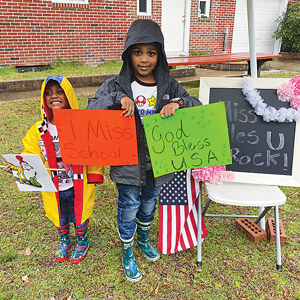
“Since Coleman was on the announcement crew at school, I wanted to keep that going for him and share it on my Facebook page,” Ashley said. “He looked up the daily weather forecast, told jokes, gave recycling tidbits, and shared the lunch choices for the day. He began with the Pledge of Allegiance and our school’s Panda Pride and ended with our mindful breathing activity and motto. My friends and family were eagerly awaiting the next set of announcements each day.”
Even though Ashley and her family had their fair share of stresses and challenges, they made the most of their time at home together, and their children continued to learn and thrive. But for many families, the school closures presented insurmountable hardships, another reminder of just how interconnected our schools and economy are. The pandemic also highlighted many inequities within our society. “For example, the so-called digital divide or ‘homework gap’ is real, and it has been in existence for a long time now,” said Dr. Becker. “I wrote a dissertation about digital equity in education in 2003, and things are only slightly better now than they were then.”
Heading Toward a New School Year
In early summer, local school districts sent out surveys to families. Parents were asked if they were comfortable with their children returning to school campuses, or if they preferred virtual learning. Parents were surveyed about family access to technology as well as their transportation needs, should students return to campus. Some school systems polled their teachers to see how they felt about returning to the classroom, and many teachers expressed concern. There was already a regional teacher shortage prior to the pandemic, and it’s likely that this health crisis and resulting budget cuts will make a challenging situation even worse.
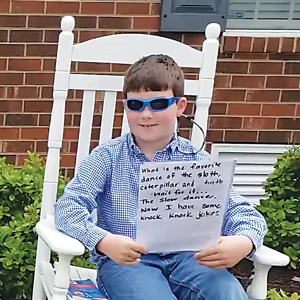
Dr. Becker encourages stakeholders – families, teachers, and administration – to remain patient during this unprecedented time. “School leaders at the building and division level need to be empathic and gracious in working with teachers this year,” Dr. Becker said.
And since no one knows how the rest of this academic year will play out or when schools may need to close again for an extended period of time, it’s critical that teachers receive what Dr. Becker refers to as “meaningful professional development around distance education. And, by meaningful professional development, I do not mean one-time, drive-by workshops on how to use a particular piece of technology. Good professional development is ongoing and immediately job-relevant,” he said.

In terms of providing better support for students during a future school closure, Dr. Becker says that understanding students’ home lives and their access to technology is critical to reaching them academically, but that is really just the first step.
“Survivalists, people who actively prepare for emergencies, are known to have what’s called a ‘bug-out bag’ that contains everything one might need to survive for extended periods of time outside the home,” Dr. Becker said. “So I wonder what an educational bug-out bag might look like. What do students need to have at their ready in order to survive extended periods of time away from school?” This is where school systems might consider certain texts, novels, and hands-on items that might be given to students in order to keep them engaged and curious.
While all school divisions in the region have plans in place to provide online instruction, research supports that the virtual classroom will not replace face-to-face learning anytime soon. “The growing body of research on distance learning in K-12 education suggests that it is highly ineffective as measured by student achievement,” Dr. Becker said. But he also argues that student achievement is not the ultimate goal of schooling.
“If the purpose of education is to prepare young people to be productive members of a deliberative democracy, and if more and more of our deliberation happens online, then I think we have an obligation to prepare students for that world.”
Across the Greater Richmond area, administrators, teachers, parents, and students have been attempting to ready themselves for what is sure to be a challenging and unusual school year. Many districts will begin with virtual instruction for the first nine weeks; others are allowing in-person instruction for a limited number of students on select days. Patience, understanding, and flexibility will be more valuable traits than ever before regardless of the situation.
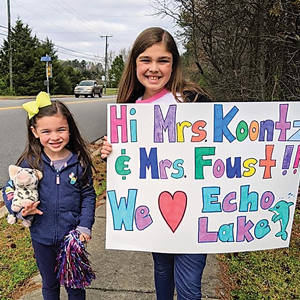
Over the past few weeks, Lauren Boothe has considered strategies for improving her own online learning experience. “Something I will do differently will be to create a daily schedule for myself in which I can be the most productive,” Lauren said. “I know much more now than when we began distance learning, especially when it comes to turning in my assignments and working with teachers.”
During the early months of the pandemic, students and teachers tolerated the limited capacity of our favorite stores and restaurants, but we mourned the closure of our schools.
“I miss seeing my teachers and eating lunch with my friends,” Lauren said. “I am definitely eager to go back to school: the atmosphere, the people, everything I look forward to on a daily basis during the school year.”
Until Lauren gets her wish, families and educators across the region must support each other. Whether your child’s classroom is in a school or in your kitchen, we are all learning differently this year. And we are all in this together.


